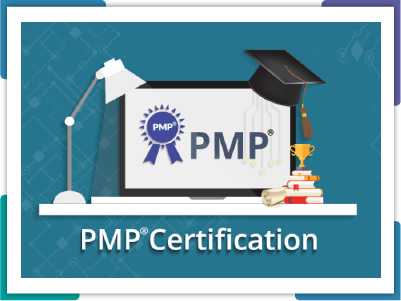
Some Personal Feelings of Preparing for PMP
I took the PMP test in September 2019, and I was in the middle of the 5A Group. They took the long-distance class of SPOTO, which started in June and the exam was taken in September. Half a year later, I think back to the time when I was preparing for the exam, I have some fresh feelings, which is noteworthy.
1. I have always been asked: Is it useful to take PMP online?
I think the thought of the person who asked this question is obviously not understand enough. If you just want to add something attractive to your resume, you should go to the recruitment websites to see whether the enterprises that you would like to go would ask for this certificate or not. If it is unnecessary, you don’t need to take this exam at all. If it is necessary indeed, why for the hesitation? If you just want to improve yourself and increase knowledge and skills, why for the questioning? Knowledge is always useful, and skill is not burden. Since you have extra time, energy and budget, why are you so utilitarian?
2. What changes does PMP make to your life after learning?
Quite a lot. PMP is a methodology system for doing works, and it is also permeated with some thinking consciousness orientation. Here are some points that I have been impressed the most: ① Risk Awareness. Every moment in life is full of risks. After learning PMP, I can feel that my risk awareness has been improved, and I am more sensitive to risks, and consciously identify, avoid and formulate response plans, which are necessary guarantee for life stability. ② Cost Awareness. “Every choice has a price.”. Each decision we have made, it should be clear that the opportunity cost of doing so. This does not certainly make decision-making more wise, but it at least will make oneself more accessible, and face frustrations and difficulties more calmly. ③ Attitude to Work. PMP taught me that when things are obstructed, I will abandon the thinking inertia of giving up or pushing back again at the first time, think more ways, try more, complain less about the big environment, complain less about colleagues and superiors, and focus more on the work in front of me. As project manager, don’t think too much about the meaning of the project itself. As an individual, don’t question the superior’s decisions and the colleagues’ ways of doing works. Observe more, be patient and empathy. You will find the the blind spots in your thought and bad inertia in your thinking.
3. What is the most important in the preparation for the PMP Examination?
For the students in the network class, the most important and difficult to adhere to is to have live classes on time. If you don’t have the live classes, you can only hope to see the replay videos, and the effect will be discounted. The process of preparing for the examination is a self-management project itself. In those three months, If we can find ways to keep in the classes at a fixed time? If we can finish homework and tests on time? If we can coordinate the relationship between work and life, ourselves and families? If we can make the environment be conducive to our study and preparation for examination? All of this challenges are testing how much endowment and conditions you have as a person who wants to master the skill of project management. It can be said that the preparation process is the first step for you to move towards project management professionals.
4. How to use learning technology?
I am really impressed by SPOTO’s technical support (the teachers’ extraordinary ability doesn’t need much description.) If the learning process is regarded as an engineering, there can be corresponding technical means to assist and improve. For example, the Wrong Question Set System. It is an irreplaceable function to record and digest the mistakes and problems encountered in daily test, unit test and simulation test, which is irreplaceable for overcoming stubborn points in thinking and straightening out the knowledge context in the end. Let alone the convenient Online Course System, which is available for PC and mobile phone. You can study at any time.
5. A sharing of a learning method.
When facing a strange knowledge system, the fastest way to get started is to understand the framework and context. Only if you have a map in your mind, you won’t get lost. A scholar, my old classmate mentioned in a chat that his habit of reading is that he always holds the pages of the catalogue firmly. No matter how far he reads it, he will come back to the directory constantly and confirm his position over and over again, which is very enlightening to me. When we first came into contact with PMP. There are five process groups, ten knowledge fields, and hundreds of ITO, which are nerve-racking for everyone. How to get rid of the dilemma? In addition to following the teachers to learn chapter by chapter, and hoping to be more and more familiar with the system with the deepening of learning, I also did a work, that is, to draw a two-dimensional table in the mind map. This is the knowledge map of PMP!
There is also a table in the book. But the advantage of mind map is that it is easy to maintain. You can also expand or collapse. It can be used for expansion and the establishment of contact. More importantly, with the deepening of the course and the continuous interaction with this mind map, I suddenly realized a problem, which can be said to be a “dilemma”. That is: no matter the PMBOK arrangement or the preparation of learning courses, they can only be segmented “horizontally” according to the knowledge field. That is to say, when it comes to a knowledge field, you will experience five process groups respectively, when it comes to the next chapter to another knowledge field, and then experience those five process groups respectively again.(most of the knowledge fields only involve three process groups). But the implementation and promotion of real projects is obviously not like these. When the project is in a process group, it will involve all the corresponding work in each knowledge field, that is, a “vertical” segmentation. Without such a map of knowledge, you will be very confused, and the knowledge will be fragmented and without organization. It would be difficult to achieve integration. Making a good use of learning technology can yield twice the result with half the effort.
Finally, I still want to thank you, SPOTO for your courses and teachers, who help me, such a probing person understand such an interesting thinking system.
























